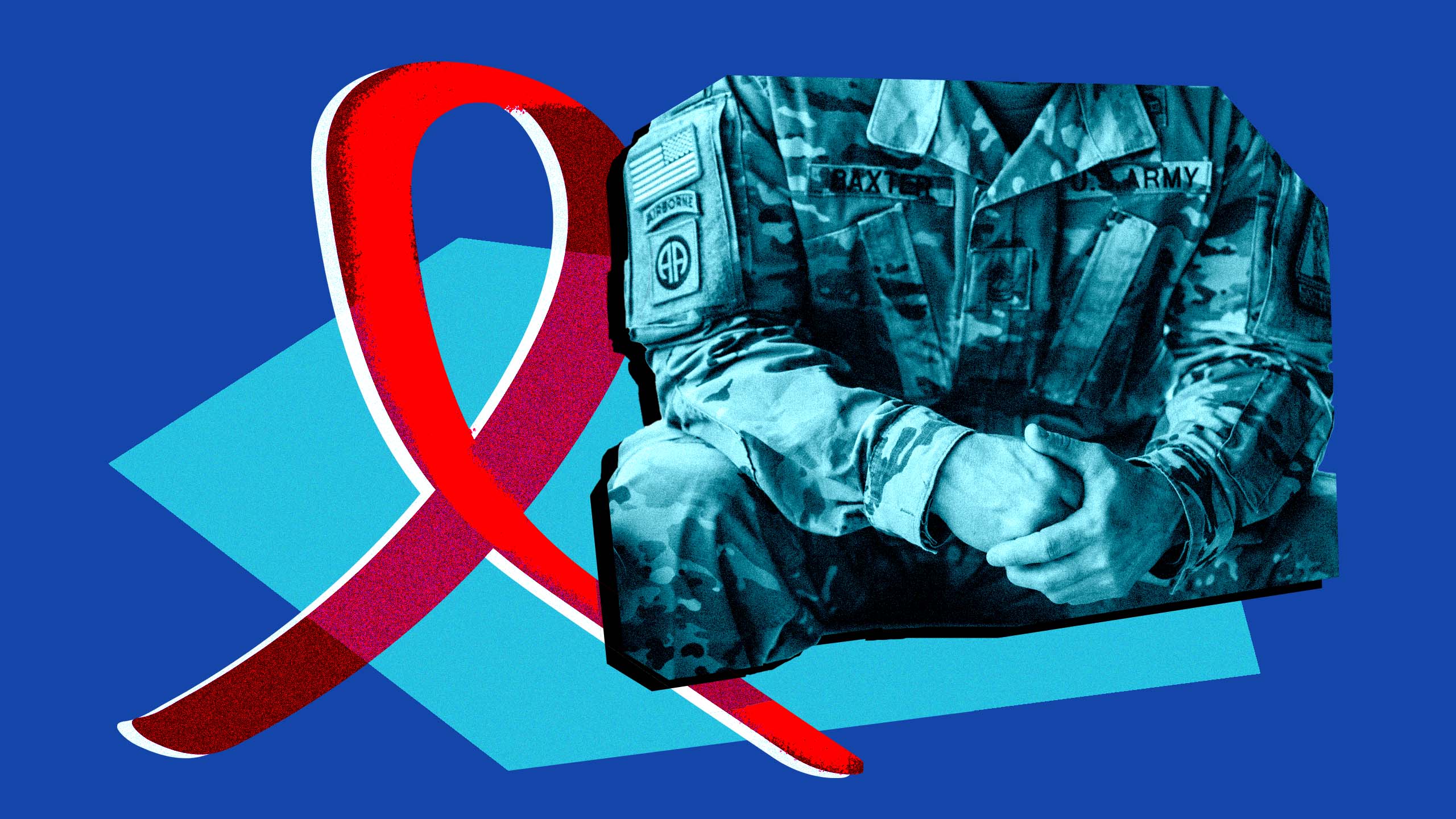Following a historic court ruling, the United States Armed Forces will no longer be able to discharge service members over their HIV status.
On April 6, Judge Leonie Brinkema of the U.S. District Court for the Eastern District of Virginia ordered the U.S. Air Force to overturn its November 2018 decision to relieve two HIV-positive airmen of their duties. According to a lawsuit filed by the advocacy groups Lambda Legal and Modern Military Association of America (MMAA), the anonymous plaintiffs were allegedly informed of their dismissal just days before Thanksgiving.
Brinkema’s ruling also impacted a second suit filed on behalf of Sgt. Nicholas Harrison, who was denied a position in the D.C. National Guard in 2015 because of his HIV status. Officials reportedly informed Harrison that his application to be a Judge Advocate General (JAG) officer was “not in the best interest of the Army.”
Although Brinkema’s full decision has been temporarily sealed, a written order explained that the ruling applied to all HIV-positive service members who have been “classified as ineligible for worldwide deployment” despite having an undetectable viral load.
Civil rights groups representing the plaintiffs lauded last week’s court decision. Scott Schoettes, counsel and HIV project director at Lambda Legal, said in a statement that the verdict is “one of the strongest judicial rulings in over two decades for people living with HIV.” Kara Ingelhart, a senior attorney at Lambda Legal, added that it would eliminate barriers to discrimination for “approximately 2,000 service members currently serving while living with HIV.”
“Until these lawsuits, the Department of Defense was the only entity in the U.S. that was still legally permitted to discriminate against people living with HIV despite the existence of the Americans with Disabilities Act and the Rehabilitation Act,” Ingelhart said in a press release.
In 2018, the military introduced a “Deploy or Get Out” policy that critics argued could lead to HIV-positive service members being kicked out en masse. The Trump-era rule stated that troops who are unable to be deployed for 12 consecutive months forfeit their status as active members of the U.S. Armed Forces. The military does not allow people with HIV to be deployed to war zones.
The court order will not alter the military’s policies on deployment, but advocates say it will help address the decades of stigma to which HIV-positive service members have been subjected. During the height of the AIDS crisis, troops who were diagnosed with HIV were transferred to barracks known as the “HIV hotel” and “the leper colony,” according to a 1989 article in the Los Angeles Times.
Despite the rapid advances in testing and treatment over the past three decades, people living with HIV are not permitted to enlist in the U.S. military. Only those who are diagnosed with HIV after joining the Armed Forces are permitted to be part of the Army, Navy, Air Force, Coast Guard or Marine Corps.
The military has also faced criticism for the strict regulations to which it subjects HIV-positive service members in its ranks. As Rolling Stone reported in 2017, troops living with HIV are told not to share toothbrushes and razors with colleagues and are required to sign a “Safe Sex Order” following their diagnosis. The order tells service members to use contraception to prevent the transmission of HIV to sexual partners, as well as pregnancy.
In light of the ruling, LGBTQ2S+ advocates called on the U.S. military to continue lifting regulations that make the lives of HIV-positive service members more difficult. Schoettes called the Pentagon’s policies on HIV “outdated” and “arbitrary,” and said that “appropriately managed HIV is a chronic condition with little to no effect on a person’s overall health or daily activities.”
As part of his LGBTQ2S+ rights platform during the 2020 presidential campaign, U.S. President Joe Biden called to “reverse Department of Defense policies that perpetuate stigmatization of and discrimination against people living with HIV.” It’s unclear if he has followed through on that pledge.


 Why you can trust Xtra
Why you can trust Xtra


